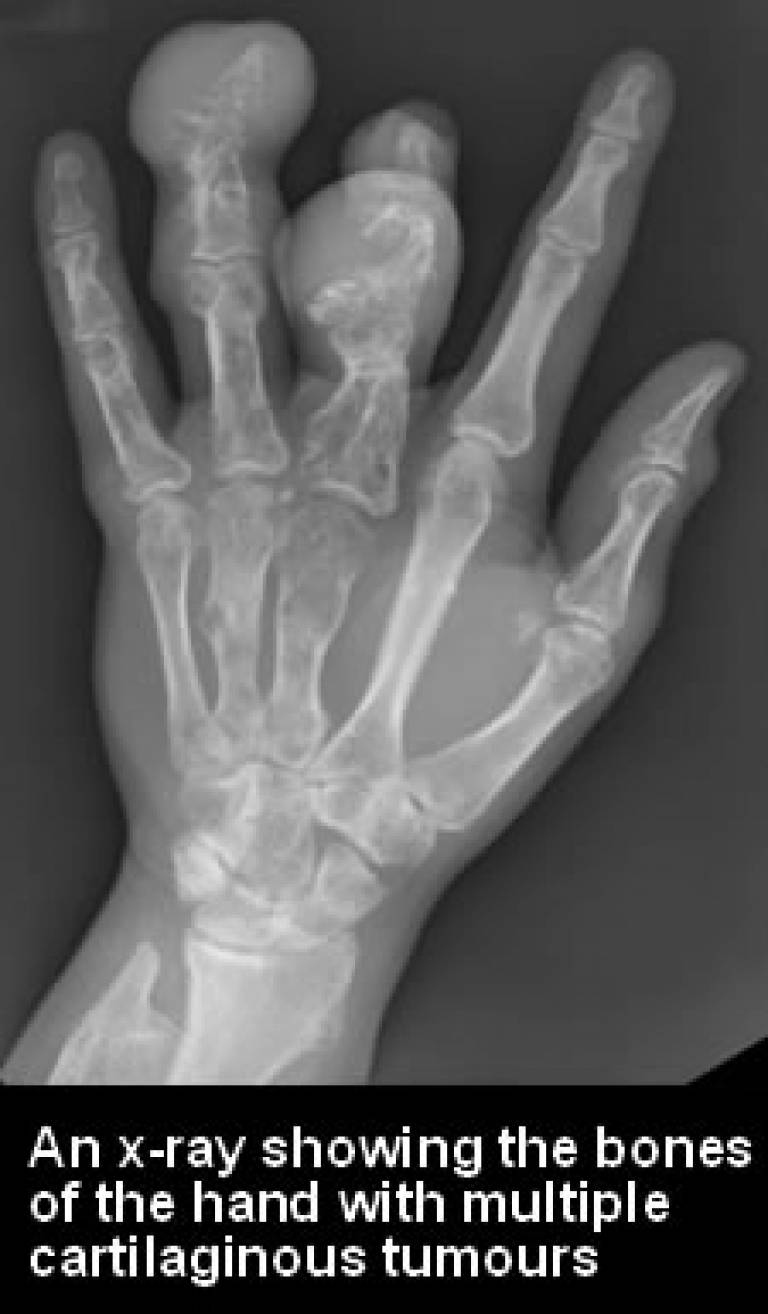Ollier disease and Maffucci syndrome are caused by somatic mosaic mutations of IDH1 and IDH2
18 November 2011
M Fernanda Amary, Stephen Damato, Dina Halai, Malihe Eskandarpour, Fitim Berisha, Fiona Bonar, Stan McCarthy, Valeria R Fantin, Kimberly S Stralley, Samira Lobo, Will Aston, Claire L Green, Rosemary E Gale, Roberto Tirabosco1, Andrew Futreal, Peter Campbell, Nadège Presneau, Adrienne M Flanagan Corresponding author: Adrienne M Flanagan (a.
 flanagan@ucl.ac.uk)
flanagan@ucl.ac.uk)Letter in Nature Genetics - on line 6 November
Recently research performed at UCL Cancer Institute and the Royal National Orthopaedic Hospital, NHS trust with collaborators in The Wellcome Trust Sanger Institute and Agios, a pharmaceutical company in the USA, unveiled the long sought after genetic abnormality driving rare forms of diseases involving bone, known as Ollier disease or Maffucci syndrome. These non-hereditary diseases are characterised by multiple cartilaginous tumours arising in bone without and with haemangiomas (tumours of blood vessels) respectively. The number of tumours in each affected individual is variable, ranging from 2 to 100s, and may cause skeletal deformities at a young age. Although the majority of these tumours are benign, there is a 30 to 50% risk of malignant transformation into chondrosarcoma (a cancer formed by cartilage cells) during an affected individual's lifetime. The genetic abnormality (mutation), which the research group has identified, that drives the growth of these cartilaginous tumours are found in the gene isocitrate dehydrogenase (IDH 1). The mutations are acquired early in the developing embryo which explains the distribution of multiple tumours in different tissues in the body. The research also explains the rare occurrence of a subtype of brain tumour, and leukaemia in patients with Ollier disease and Maffucci syndrome, as these two tumour types are also known to carry IDH1 mutations. Patients with cartilaginous tumours may benefit from the targeted therapy already being developed for these other tumours carrying these IDH1 and IDH2 mutations.
The research was largely funded by small UK charities - Skeletal Cancer Action Trust and Bone Cancer Research Trust
 Close
Close

